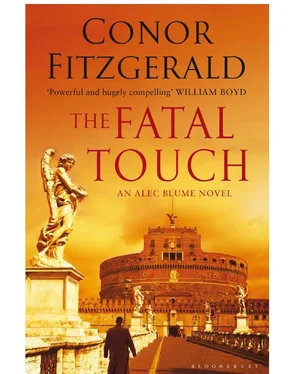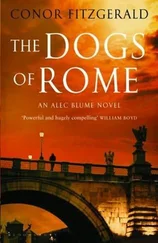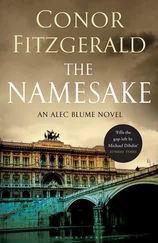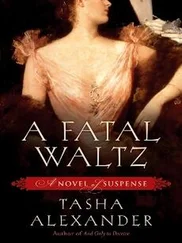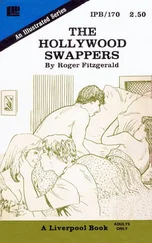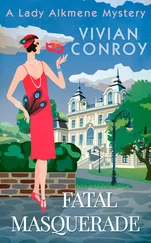Conor Fitzgerald - Fatal Touch
Здесь есть возможность читать онлайн «Conor Fitzgerald - Fatal Touch» весь текст электронной книги совершенно бесплатно (целиком полную версию без сокращений). В некоторых случаях можно слушать аудио, скачать через торрент в формате fb2 и присутствует краткое содержание. Жанр: Полицейский детектив, на английском языке. Описание произведения, (предисловие) а так же отзывы посетителей доступны на портале библиотеки ЛибКат.
- Название:Fatal Touch
- Автор:
- Жанр:
- Год:неизвестен
- ISBN:нет данных
- Рейтинг книги:3 / 5. Голосов: 1
-
Избранное:Добавить в избранное
- Отзывы:
-
Ваша оценка:
- 60
- 1
- 2
- 3
- 4
- 5
Fatal Touch: краткое содержание, описание и аннотация
Предлагаем к чтению аннотацию, описание, краткое содержание или предисловие (зависит от того, что написал сам автор книги «Fatal Touch»). Если вы не нашли необходимую информацию о книге — напишите в комментариях, мы постараемся отыскать её.
Fatal Touch — читать онлайн бесплатно полную книгу (весь текст) целиком
Ниже представлен текст книги, разбитый по страницам. Система сохранения места последней прочитанной страницы, позволяет с удобством читать онлайн бесплатно книгу «Fatal Touch», без необходимости каждый раз заново искать на чём Вы остановились. Поставьте закладку, и сможете в любой момент перейти на страницу, на которой закончили чтение.
Интервал:
Закладка:
“That was a damned good question,” said Blume. “How did you know?”
“I didn’t. But the reason I guessed is from another thing that I think will interest you. On the train up, I was leafing through the photocopy of Treacy’s notes looking for a mention of Nightingale and the Colonel together, and I found one. And it makes sense that both Nightingale and the Colonel would be anxious to stop Treacy from publishing, if only for this part of his writings.”
“You read this bit on the train?” said Blume.
“Yes.”
“I have read through the notebooks twice,” said Blume. “What’s the passage you are referring to?”
“Basically, it’s where Nightingale and the Colonel sold forged paintings to a Cosa Nostra boss in Trapani,” she said.
“That’s toward the beginning of the second volume,” he said. “Do you have the photocopy with you now?”
“Yes.” Caterina bounced out of her chair and came back a minute later holding the photocopies.
Blume glared at her. “Where were they?”
Caterina’s step faltered. “In my desk. Locked.”
“You brought them here?”
She nodded.
“And you just said you had them on the train, too. What if you had forgotten them there? What if Panebianco or Rospo or someone had found them in your desk?”
“They were locked in a drawer.”
“Fuck it. That’s not good enough, Caterina. I asked you to be extra careful.”
“So where are the originals, Commissioner?”
“In a safe place,” said Blume.
“Here?”
Blume hesitated.
“Or maybe somewhere in your apartment? So which one of us is physically guarding them. Actively looking after the documents? You or me?”
“Sorry,” said Blume. “It’s more the idea of them being on your desk out there than anything else.”
“In my desk, not on it. There’s a difference.” Caterina sat down again, her face creased. She seemed ten years older than a minute ago. “You could have said thank you for what I achieved this morning. Maybe not thank you, even though you and I both know this is now your private little investigation. How about a ‘Well done, Caterina,’ something along those lines?”
Blume held up his hands in an exaggerated gesture of surrender. “Sometimes I’m not so good with people. It’s something I can’t seem to do much about.”
“Then you’re not a good commander.”
In the silence that followed, the loudest noise was the sound of the scratch of Blume’s pen as he amended something on his notepad. Caterina sat mutely listening to the heavy slowness of Blume’s breath, punctuated by a strange sound that seemed to come from far away but, she realized, was coming from him. He was humming broken bars of some song very softly and intermittently to himself, apparently without being aware of what he was doing. She realized she could look up, since he was bent down, attending to his work. Her photocopy sat unopened on his table.
After a while, she said, “Do you at least want me to show you the piece I am referring to?”
“Well, just to be sure.”
She opened the section, which she had marked with a Post-it note.
“The Trapani deal with the Colonel. What made you associate this with Nightingale’s being Manuela’s father?”
“Emma, not Manuela,” corrected Caterina. “The girl’s real name is Emma.”
“Right.”
“My own fears.”
“Of?”
“That some criminal event will break into my private life. I often wonder what I would do. And I was also thinking of Emma’s generous pay, the apartment, her confident manner. I’d like to see Nightingale.”
“I forgot, you didn’t meet him the other day.”
“No. In fact, I wanted to ask you what he looks like and the color of his eyes.”
“Bald. Gray… pink. I have no idea. Who notices these things?”
“Emma has blue eyes, fair skin, fair hair,” said Caterina. “She looks more northern European than Italian, really. Her mother, Angela, has dark hair, graying now, dark-brown hair, huge brown eyes, and sallow skin. They don’t look alike at all. But it’s not just that. If Nightingale really did feel under threat from Cosa Nostra, it makes sense for him to hide his daughter’s identity. It’s what I would do if I knew how. Nightingale does know how. He invents histories. So when I got confirmation that Emma’s history was partly made-up, it made me think of him. He creates provenances for works of art. Emma is his work of art. Fear of proxy reprisal seemed an excellent reason for hiding her identity.”
“If he was anxious to hide her identity, it doesn’t make sense to have her working with him,” said Blume. “That puts her right back in danger.”
“I know. I thought about that later. But it keeps her close, too.”
“So we have Nightingale, Angela, and their daughter Emma,” Blume traced an imaginary triangle on his desk. “Mother, father, daughter. You know, more than anything else, it looks to me like some sort of plot to exclude Treacy. So Nightingale did not like or trust Treacy enough to reveal the existence of his daughter.”
“Which raises an interesting possibility,” said Caterina. “By inviting his daughter to work in the Galleria Orpiment, Nightingale was making a fool of his partner. Or imagine a very pretty woman arrives in the gallery, maybe Treacy thinks he can make a move on her, ignore the gulf of years. She tells her father, or maybe Nightingale sees it happening, gets very angry, confronts his partner, they argue, or he hires someone, or he just comes up behind him at night, flattens him with an iron bar.”
“It was an inspired deduction,” said Blume.
“A lucky guess. If I had thought about it more, I might have discounted it again.”
“It makes Treacy a bit of a bastard for putting them in danger by writing about how they defrauded the Mafia.”
“I agree,” said Caterina. “I don’t think I’d have liked Treacy all that much.”
Chapter 19
I am not a thief. It is not part of my identity. I made that choice the day I returned the Jack Yeats to Mrs. Heath. But like any sensible person, I will cave in to pressure.
Nightingale made a couple of stupid moves with some big dealers, and we suddenly found ourselves in trouble with Lieutenant Farinelli who, for the first time, had some real leverage in the form of witnesses and proof of false provenance. Farinelli had contacts up and down the hierarchies of crime, politics, and even the military, which in those days hovered over everything in Italy like a thin mist, best visible from a distance, hard to notice, but still limiting when you were in the middle of it. Farinelli was there in 1969 when the Carabinieri formed the “Unit for the Protection of Artistic Heritage,” and was an officer in 1971 when the unit became a fully independent division. Independent as in Farinelli’s fiefdom, until, in one of those obscure maneuvers that no one, not even the participants, ever properly understands, a challenge was mounted to his authority. The challenge came from outside, in 1983, when a series of de Chirico works were stolen from the home of Angelica Savinio, the artist’s niece, a person I am proud to call my friend.
Giorgio de Chirico, as it happens, had been something of a hero of mine. Not only did he share my belief that the only true art is an imitation of past art, he even liked to put false dates on his works. Sometimes he signed paintings that imitated his style. He forged himself. He encouraged me, was kind to me, and was a man of great integrity.
When the Carabinieri unit arrived to investigate the theft, Farinelli made his usual recommendation, which was to keep the whole thing as quiet as possible. Angelica Savinio was told that the best way to get her paintings back was simply to wait. Then, with any luck, when the thieves made a false move or tried to sell the paintings, Farinelli and his team would pounce.
Читать дальшеИнтервал:
Закладка:
Похожие книги на «Fatal Touch»
Представляем Вашему вниманию похожие книги на «Fatal Touch» списком для выбора. Мы отобрали схожую по названию и смыслу литературу в надежде предоставить читателям больше вариантов отыскать новые, интересные, ещё непрочитанные произведения.
Обсуждение, отзывы о книге «Fatal Touch» и просто собственные мнения читателей. Оставьте ваши комментарии, напишите, что Вы думаете о произведении, его смысле или главных героях. Укажите что конкретно понравилось, а что нет, и почему Вы так считаете.
